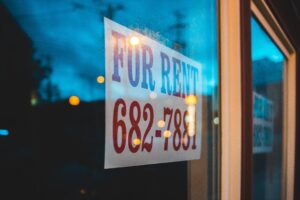How Marijuana Legalization Could Impact Commercial Insurance
As of April 2021, 17 U.S. states and the District of Columbia have legalized recreational marijuana.
New York legalized home cultivation and the personal possession of three ounces of marijuana for adults in March.
The law – New York Marihuana Regulation and Taxation Act – also prohibits discrimination against workers based on the legal use or possession of marijuana products while off duty and outside the workplace, setting into motion a whole host of questions for employers and commercial enterprises.
Our colleagues over at Fox Rothschild, LLP have posted an excellent blog with a Q&A on some of the issues.
What does the legalization of recreational marijuana mean from a commercial insurance standpoint?
It’s tricky…
Certainly, there will be legal challenges, and the new freedoms in the law come without any guidelines for business. How can a business prohibit the use of a substance that is now legal?
And how do you reconcile federal laws prohibiting marijuana use with state laws permitting it?
Insurance is often a national product – it’s difficult to write a policy with protections that differ from state to state. This restricts a policyholder’s plans and offers few choices.
When it comes to commercial auto – marijuana is legal in New York, but what happens when your driver crosses into a state where it’s prohibited?
Worker’s Comp Concerns with Marijuana Legalization

Most worker’s comp policies prohibit drug and alcohol use while on the job. Companies are not considered negligent in a worker’s comp accident if the employee violated policy.
Certainly, any business where the work involves heavy machinery should be concerned about marijuana use.
We’re used to regulating alcohol and have reliable tests and legal limits to guide us.
But with legal marijuana use, how much does it take to be impaired?
What’s the ‘day after’ look like?
For firms that already have drug testing, should they ignore marijuana residue when it turns up?
We know industrial accidents rise when employees are hungover from alcohol, but what about marijuana?
And what about repetitive jobs that don’t require machinery or heavy thinking, like bagging groceries?
Should you enforce strict no-use guidelines?
Here’s one more wrinkle: what if your employees are allowed to use medicinal marijuana at work, and they get injured?
Generally, worker’s comp doesn’t cover injuries when an employee is under the influence. That’s tricky when the influence is the medication and that medication is not FDA approved.
Be sure your company policy makes employees aware that medicinal use might affect their workers’ comp benefits.
How Is Employment Practices Liability Insurance Impacted by Marijuana Legalization?
New York’s new marijuana law has amended the New York Labor Law (NYLL) explicitly protecting employees “from discrimination based on the legal use of consumable products, including cannabis in accordance with state law.”
So a New York employer cannot refuse to hire an applicant, or discipline or terminate an employee, because they lawfully consumed marijuana outside of the workplace, during non-work hours, and when consumption does not impact the employee’s ability to perform necessary job duties.
Just like sexual harassment coverage, a business might want some extra EPLI protection in case they get sued.
But EPLI is strained beyond its limits and is not as available as it once was. Historically, the industry didn’t see a lot of claims. That has changed in recent years with higher profile lawsuits and a long-due reckoning with the MeToo movement.
Any EPLI you can access now is more expensive and more restrictive.
For those who already have EPLI, premiums are going up as claims and jury awards rise.
Insurance for Cannabis-Related Businesses (CRBs)
The insurance industry is grappling with how to write and charge for a policy for a business and product that the federal government says is illegal.

Say you’re a grower or a dispensary just opening in New York – what insurance options are available for you? You face the same risks other agricultural and manufacturing businesses face: theft, property coverage, product liability, worker’s comp, and employment practices liability. For example, if you’re a grower using fungicides that later prove harmful, will your product liability cover it?
If you’re a dispensary that repackages it, are you liable? Product liability is typically part of a general liability insurance policy that addresses lawsuits over defective/harmful goods. But when it comes to marijuana, always ask your agent what coverages are included.
Chances are a CRB won’t find coverage with a traditional insurer. They tend to cater to a national market and don’t underwrite riskier ventures. You will find some coverages available in the non-admitted insurance market. But that means those insurance companies are not backed by the state.

The risk there is if the carrier is not properly funded when claims exceed income and they go out of business their clients have no recourse.
Even though other states have had a marijuana industry for a while, the New York/New Jersey market is uncharted territory and carriers are working with limited loss data to inform them.
Communication is key for Commercial Insurance Coverage for Cannabis-Related Businesses
The marijuana industry offers exciting potential for increased tax revenues and job growth, but there are still questions across all lines of insurance. Your best bet is to have a frank and open conversation with your broker. Discuss what you’re worried about and explore your options. Better to know now, rather than after a lawsuit is filed.



